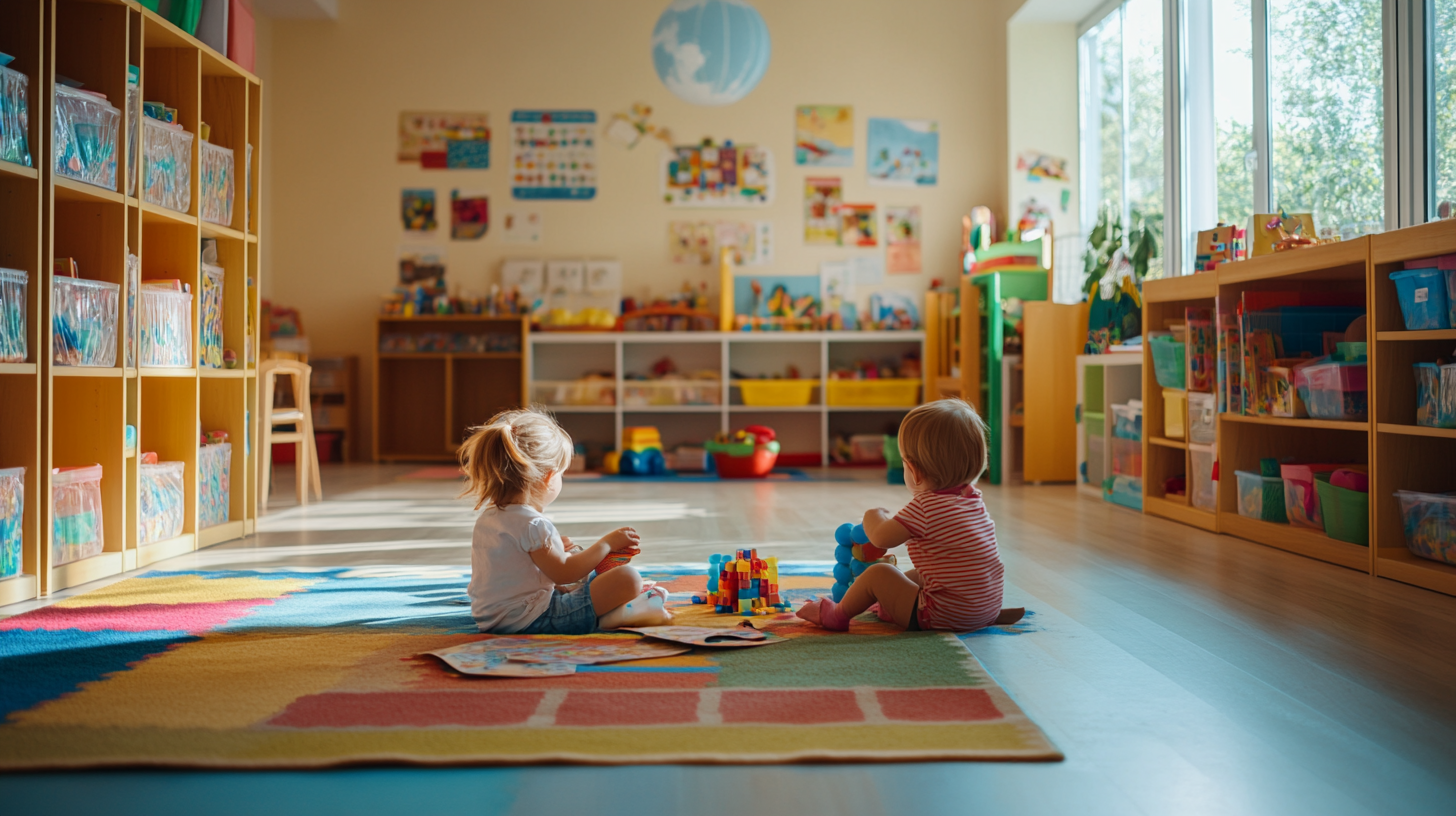In the fast-paced world of early childhood development, structured nap time might seem like a simple routine—but it’s actually a powerful part of a child’s daily rhythm. At Discovery Time Learning Center, we know firsthand how essential rest is to a young learner’s overall well-being. Whether you’re considering full or part-time daycare for your child, understanding the true benefits of structured nap time can be a game-changer.
Let’s take a deeper look at why nap time isn’t just about sleep—it’s about setting your child up for long-term success.

Why Nap Time Matters More Than You Think
If you’ve ever seen a toddler mid-tantrum, you know how a missed nap can throw off an entire day. But beyond just warding off crankiness, a consistent nap schedule is linked to a wide range of benefits that influence a child’s ability to learn, grow, and thrive.
1. Cognitive Development: Boosting Brain Power Through Rest
Structured nap time gives the brain the chance to process and store all the new information children absorb during the day. For preschoolers and toddlers, the early years are full of firsts: first letters, first friendships, first discoveries. Sleep helps consolidate these new memories and connections.
A recent study from the University of Massachusetts Amherst found that children who napped after learning new skills performed better in recall and problem-solving tasks compared to those who didn’t. In early learning programs, this means nap time directly supports academic readiness.
At Discovery Time Learning Center, we’ve seen firsthand how children return from rest more focused, engaged, and ready to participate in learning activities—especially during the critical afternoon stretch.
2. Emotional Regulation: Fewer Meltdowns, More Smiles
Nap time isn’t just for the brain—it’s for the heart too. Young children, still learning how to manage emotions, are much more prone to stress and overstimulation. Naps offer a much-needed pause from the sensory overload of the day.
Children who nap regularly are better equipped to handle transitions, cooperate with peers, and express their emotions in healthier ways. They’re also more likely to follow instructions and adapt to changes in their environment.
Our educators build nap time into the daily schedule at Discovery Time Learning Center as a tool for emotional balance. This consistency helps children feel safe, seen, and supported.
3. Physical Health: Supporting Growth and Immunity
Sleep is when the body kicks into maintenance mode. For young children, that means physical growth, tissue repair, and immune system support—all happening during nap time. A child’s body produces growth hormones while they sleep, helping them develop strong muscles and bones.
Plus, well-rested children tend to have stronger immune systems and are less likely to fall ill. This not only benefits the child but also helps maintain a healthy environment for everyone in the learning center.
At Discovery Time, nap environments are clean, comfortable, and quiet—ensuring that children can rest deeply and reap all the health benefits that come with it.
4. A Predictable Routine: Building a Sense of Security
Children thrive on routine. Structured nap times provide a daily anchor that gives children a sense of control and predictability in their world. When they know what’s coming next, children feel more secure and confident, which reduces anxiety and improves behavior.
Our team at Discovery Time Learning Center integrates nap time into a thoughtfully planned daily schedule. From story time to snacks, to outdoor play and naps, every part of the day flows smoothly—helping children feel safe and supported from morning drop-off to afternoon pickup.
The Educator’s Role: Guiding Rest With Care
A successful nap time doesn’t just happen. It requires skilled caregivers who understand the unique needs of each child.
At Discovery Time Learning Center, our teachers:
- Gently guide children through pre-nap routines (like calming music, dimmed lights, or a favorite book).
- Provide a cozy and supervised environment for each child.
- Recognize signs of tiredness and tailor the routine to individual sleep patterns when needed.
We understand that not all children nap the same way. Some may need more time to wind down, while others doze off quickly. That’s why we approach nap time with flexibility and compassion.

Bridging the Home-Daycare Gap: Consistency is Key
Parents often worry about nap schedules being disrupted at daycare. At Discovery Time, we work closely with families to understand each child’s natural rhythm and try to mirror that schedule within our program as much as possible.
When home routines and daycare routines are aligned, children experience less stress and better quality sleep. We’re happy to partner with parents to create nap time consistency that works both at home and at the center.
What the Research (and Our Experience) Says
Many top-performing early childhood education programs across the country emphasize nap time as essential—not optional. A comparison of programs with and without structured nap time shows that children who rest daily:
- Perform better on early learning assessments
- Show fewer behavioral challenges
- Are more physically active and engaged when awake
And guess what? We’ve seen the same results right here at Discovery Time Learning Center.
Nap Time in Action at Discovery Time Learning Center
Here’s what a typical rest time looks like at our center:
- After a busy morning of activities, children are transitioned into a calm, quiet atmosphere.
- Soft music or white noise sets the tone while children settle into individual nap mats or cribs.
- Teachers gently pat backs, offer soothing words, or provide quiet companionship to help children drift off.
- The room is supervised throughout to ensure safety and comfort.
- After nap time, children wake refreshed and ready to take on the rest of their day.
It’s not just downtime—it’s a carefully designed part of our curriculum that supports whole-child development.
Final Thoughts: Rest Easy—Nap Time Is a Superpower
Structured nap time isn’t just a pause in the day. It’s a powerful tool that fuels brain development, emotional stability, physical growth, and overall learning readiness. At Discovery Time Learning Center, we treat rest with the same importance as any other part of our educational program.
If you’re looking for a daycare that nurtures your child’s potential in every possible way—including the restful ones—we invite you to see how we do things differently.
Ready to Learn More?
Discover the difference a nurturing, structured environment can make.
Contact Discovery Time Learning Center today to learn more about our full and part-time daycare programs—where nap time is just one of the many ways we support your child’s bright future.



